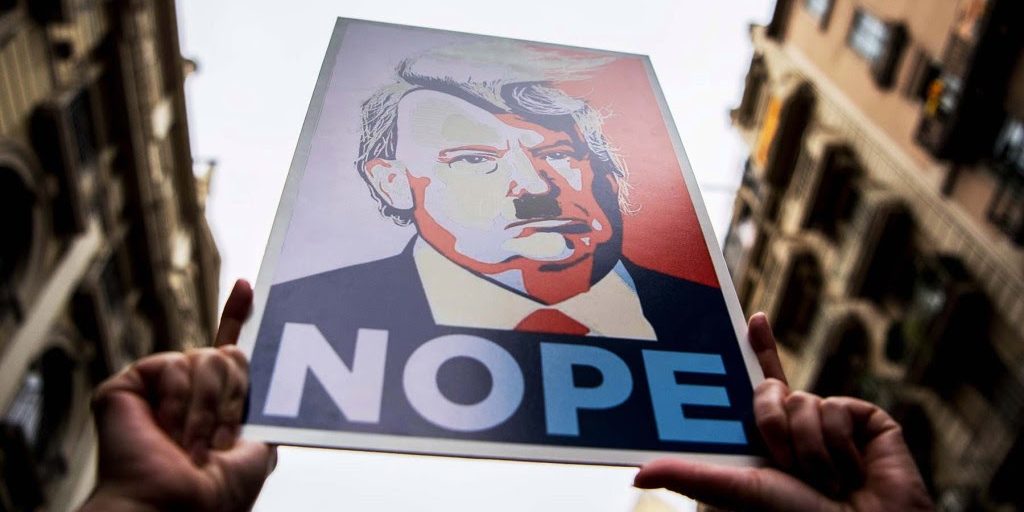If I had a dollar for every time someone asked me if I was a communist, I would never want to be one.
My high school economics class consisted of two groups. On one side were the market-is-always-right capitalists who expended every breath in loudly declaiming the benefits of trickle-down economics. On the other side were the “commie comrades” who secretly wanted the public to own everything. It didn’t matter that these were just caricatures of their real stances: what can only be called name-calling matches erupted at every debate we had. Irrespective of self-identification, these crude generalizations were unceremoniously thrust upon them by everyone else.
I always found this immaturity rather unbecoming. It’s a tactic one would expect from irascible toddlers in a sandpit, not teenagers. And not from the policymakers who help structure and redefine our socio-political environment.
Recent years have seen a resurgence of words like fascist, socialist, and communist in American political parlance. This renewed influx of abstraction seeks to hyperbolize supposed deviations from the ‘democratic ideal’ and discredit opponents in voters’ eyes. However, its overuse by politicians may present grave consequences for the future of American democracy.
Much of what is considered integral to contemporary Western politics traces back to Athenian democratic principles, which propose that all citizens should take an active role in governance. At the time, however, many were skeptical about the fledgling idea. Perhaps most famously, the philosopher Plato argued that the general public was credulous, uneducated, and therefore unfit to rule. Over time, Western democracy has grown—both in acceptance and scope of practice. Research from the Pew Research Center shows that today, nearly 60 percent of countries are considered democracies. However, some of the original criticisms of democracy may ring especially true in our present political climate.
There have been some well-documented cases of voter ignorance: only 38 percent of Americans know the difference between the House and Senate. But they are not to blame. As the complexity and size of a society increases, the average voter is both less capable of having informed economic and political preferences and less motivated to go out and acquire the requisite knowledge. If you feel like your vote definitely won’t affect an election, voting turns from an individual intellectual choice to a collective emotional reaction. The nuance in extremely complex issues is lost, and a multitude of different stances are bundled into one of two dichotomous labels. Policymaking denigrates into tribalism, fostering an “us versus them” mentality.
The voter is therefore opened up to increased manipulation from politicians. Hearts are easier to win over than minds. And to do this, they return to the bearded men in chitons for lessons in rhetoric and divisiveness. The Greeks used the word barbaros to refer to non-native speakers, representing their incomprehension through sound; every other language sounded like “bar- bar- bar-.” Soon, however, this word became an antonym for citizen—especially as a derogatory term in political speeches against other Athenians. It developed a dual cultural meaning that denoted the otherness of an opponent’s ideals, branding them as foreign and destabilizing to governance. Greek rhetoricians understood that creating the fear of the ‘unknown’ was the easiest way to garner support.
And apparently, so do today’s politicians. In 2019, Minnesota Republican lawmakers publicly proclaimed that “barbaric” abortion legislation would not “happen here.” Similarly, earlier this year, Senator Bernie Sanders (D-VT) referred to the GOP’s healthcare bill as “barbaric” for “the richest country in the world.” These accusations of barbarism are meant not only to paint the opposition as inferior but also ‘un-democratic’—and by extension, decidedly ‘un-American’.
Democracy is no longer just a rallying cry in American politics, it is now used in juxtaposition. Socialism was coined by supporters of French political theorist Henri de Saint-Simon to condemn moral individualism for not addressing the economic inequality caused by the Industrial Revolution. Later, Karl Marx and Friedrich Engels popularized communism as their vision of society following the imminent proletariat revolution. Although these concepts emerged in reaction to the injustices of unregulated capitalism, they are now deployed as antitheses of democracy.
Conversely, fascism initially became popular in Germany and Russia as an anti-communist movement after the Bolshevik Revolution in Russia. Additionally, it relies heavily on the ideologies of ultranationalism, elitism, xenophobia, and requires a proclivity for violence. Fascism is more than just anti-democratic.
Each of these words has long histories and complex underpinnings. But to modern American rhetoricians, it doesn’t matter what these words used to mean: they are all synonyms for unAmerican. The voter’s choice is simplified. They are no longer deciding between different approaches to democratic governance anymore. Instead, they must ask themselves whether or not to vote against their own country.
The intentional skewing of voter perceptions does not bode well for the American electorate. The danger is two-fold. Firstly, simplification and fearmongering confirm pre-existing prejudices and increase bigotry. The initial blow could itself be fatal to an America steeped in racist and xenophobic tradition. However, the overuse of these hackneyed phrases anesthetizes us, leaving us unable to separate democracy’s legitimate cries for help from the discordant noise of scare tactics.
American democratic institutions have slowly been eroding for decades, and the current administration has accelerated this process. In 2009, the bipartisan think tank Freedom House ranked the United States with a Freedom Rating of 94 out of 100—the fourth highest in the world. By 2020, it had dropped eight points and sat just outside of the 50 freest countries. Evidence of repressions on freedom of the press, growing disregard for checks on executive power, and systemic discrimination in the criminal justice and immigration systems back these statistics. These trends are the real enemies of America’s democratic institutions. Throwing around these polarizing abstractions only conceals their debilitating effects. The real problem is not politicians-turned-demagogues. It’s that if they are ever proven right, we will be too tired to heed their cries of wolf.

